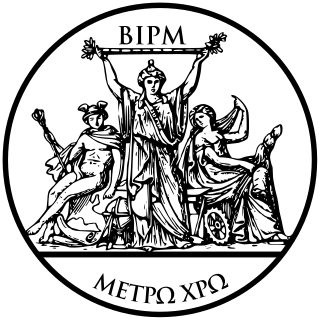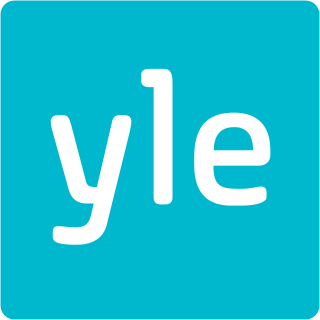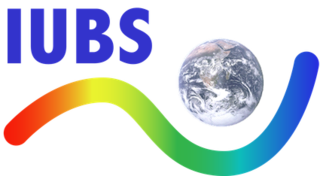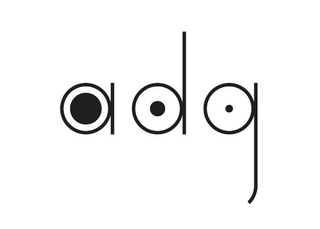
This article needs additional citations for verification .(May 2024) |
International Public Television Screening Conference (INPUT) is an international public television organization.

This article needs additional citations for verification .(May 2024) |
International Public Television Screening Conference (INPUT) is an international public television organization.
Since 1977, INPUT annually holds an international television screening conference. Held in a different country each year, the conference encourages the development of public service television by screening and debating programs from around the world.
INPUT also organizes many other activities throughout the year in dozens of countries.
INPUT is a voluntary organization, supported by conference registration fees, public television organizations, individuals, and various institutions, agencies, and foundations. The idea for INPUT took shape during a seminar hosted by the Rockefeller Foundation in Bellagio, Italy in May 1977. [1]
National Coordinators are responsible for submitting productions within a set quota to the international selection. At the international selection, a group of television professionals (called Shopstewards) make a selection of productions that are screened within the conference programme. The programmes are screened in themed sessions. The themed sessions consist of several productions of different genre's.
INPUT is supported by an International Advisory Board, consisting of public service broadcasters from around the world. The Associate Members of INPUT support the organisation of INPUT.
Since 2009, INPUT is headed by an International Assembly, consisting of individuals and organisations who pay an annual fee/registration for the conference, and have been to a set amount of INPUT Conferences in the past. The International Assembly oversees the work of the International Board - approx. 20 people from around the world. The International Board appoints the National Coordinators. The National Coordinators suggest Shopstewards to the Board.
The INPUT Archive was created in 1994, as a result of the agreement signed on 20 May 1994 between UPF and INPUT. The Archive has a collection of the programs (in VHS, Betacam and DVD format) screened at the annual conferences of INPUT, and documents associated with the organization of these conferenciers. The Archive has a complete collection from 1994 onwards. The collection is not complete for previous conferences, although the Archive do try to get hold of the missing tapes. This documentary collection has been stored and available for consultation by those engaged in the study of television since 1994 at the Universitat Pompeu Fabra Library, at the Poblenou Campus Library.
There is also available a database including information about more than 3500 programs screened since 1978, first year of the INPUT conferences. This database is an online version of the information included in the printed catalogs of the annual conferences, usually known as "INPUT Bibles".

The International Bureau of Weights and Measures is an intergovernmental organisation, through which its 59 member-states act on measurement standards in areas including chemistry, ionising radiation, physical metrology, as well as the International System of Units (SI) and Coordinated Universal Time (UTC). It is based in Saint-Cloud, near Paris, France. The organisation has been referred to as IBWM in older literature.
The British Academy of Film and Television Arts is an independent trade association and charity that supports, develops, and promotes the arts of film, television and video games in the United Kingdom. In addition to its annual award ceremonies, BAFTA has an international programme of learning events and initiatives offering access to talent through workshops, masterclasses, scholarships, lectures, and mentoring schemes in the United Kingdom and the United States.

Yleisradio Oy, abbreviated as Yle, translated into English as the Finnish Broadcasting Company, is Finland's national public broadcasting company, founded in 1926. It is a joint-stock company, which is 99.98% owned by the Finnish state and employs around 3,200 people in Finland. Yle shares many of its organisational characteristics with its British counterpart, the BBC, on which it was largely modelled.
The Dutch public broadcasting system is a group of organizations that are responsible for public service television and radio broadcasting in the Netherlands. It is composed of the Nederlandse Publieke Omroep (NPO) foundation, which acts as its governing body, and a number of public broadcasters. The Dutch Media Act 2008 regulates how air time is divided and puts the administration of the public broadcasting system in the hands of the NPO Board of Directors.
The North American Christian Convention (1927–2018) was an annual summer convention supported by churches, colleges, institutions, and missions programs associated with the Christian churches and churches of Christ, mainly across the United States, but also in other parts of the world. First started in 1927, it grew gradually over the years in both attendance and location. The NACC was held annually after 1927 until the end of that decade; the deprivations brought about by the Great Depression and the dislocations caused by World War II contributed to its being held only three times in the 1930s and four times in the 1940s; it was an annual event from 1950 to 2018. Ministers from churches across the United States came and spoke at the event, as well as other well-known speakers and authors of the Christian community. The NACC Mission statement was "the connecting place providing ideas, inspiration, and identity to New Testament Christian Churches and their leaders." Philosophically this organization gives all their credit to Jesus Christ. It was replaced in 2019 by the spire.network conference.

The Nederlandse Omroep Stichting is one of the broadcasting organisations making up the Dutch public broadcasting system. It has a special statutory obligation to make news and sports programmes for the three Dutch public television channels and the Dutch public radio services. It is funded by the Dutch government.

The International Union of Biological Sciences (IUBS) is a non-profit organization and non-governmental organization, founded in 1919, that promotes the biological sciences internationally. As a scientific umbrella organization it was a founding member of the International Council for Science (ICSU).
The International Federation of Library Associations and Institutions (IFLA) is an international body representing the interests of people who rely on libraries and information professionals. A non-governmental, not-for-profit organization, IFLA was founded in Scotland in 1927 with headquarters at the National Library of the Netherlands in The Hague. IFLA sponsors the annual IFLA World Library and Information Congress, promoting access to information, ideas, and works of imagination for social, educational, cultural, democratic, and economic empowerment. IFLA also produces several publications, including IFLA Journal.

Sheffield DocFest, is an international documentary festival and Industry Marketplace held annually in Sheffield, England.
The Hot Docs Canadian International Documentary Festival is the largest documentary festival in North America. The event takes place annually in Toronto, Ontario, Canada. The 27th edition of the festival took place online throughout May and June 2020. In addition to the annual festival, Hot Docs owns and operates the Hot Docs Ted Rogers Cinema, administers multiple production funds, and runs year-round screening programs including Doc Soup and Hot Docs Showcase.

NZ On Air, formally the Broadcasting Commission, is an autonomous Crown entity and commission of the New Zealand Government responsible for funding support for broadcasting and creative works. The commission operates largely separate from government policy but must follow directions from the Minister of Broadcasting. NZOA is responsible for the funding of public broadcasting content across television, radio and other media platforms. It is also a major investor in New Zealand independent producers.
Wildscreen is a wildlife conservation charity based in Bristol, England.

The Monte-Carlo Television Festival is held every year in June in the Principality of Monaco at the Grimaldi Forum, under the Honorary Presidency of H.S.H. Prince Albert II of Monaco.
Screen Producers Australia (SPA), formerly the Screen Producers' Association of Australia (SPAA) and earlier names, is a national organisation representing film production businesses, emerging producers, service providers and screen industry supporters. It campaigns for a healthy commercial environment for the Australian film industry. It also organises and hosts the annual SCREEN FOREVER conference for film industry professionals, and the Screen Producers Australia Awards.

The International Pharmaceutical Students' Federation (IPSF) is a non-governmental, non-political and non-religious organisation that represents pharmaceutical students, pharmacy students and recent graduates from all over the world. It was founded in 1949 and it is the oldest faculty-based student organisation. IPSF represents over 500,000 individuals in more than 100 countries with 127 different representative pharmacy student member organisations.
Students For Liberty (SFL) is an international libertarian non-profit organization with origins in the United States. Formed in 2008, SFL grew to a network of 1,000 student organizations worldwide by 2014.
Mercury CX, formerly Media Resource Centre (MRC), is a not-for-profit film and television training organisation based in the Lion Arts Centre on the corner of Morphett Street and North Terrace, Adelaide, South Australia, which aims to give screening opportunities to emerging South Australian film, video and digital media artists. It also manages the not-for-profit Mercury Cinema, which shows films by subscription to the Adelaide Cinémathèque film society, screening classic or notable films and hosts film festivals and other events. Mercury CX hosts the Screenmakers Conference and the South Australian Screen Awards.
The Aesthetica Short Film Festival (ASFF) is an international film festival which takes place annually in York, England, at the beginning of November. Founded in 2011, it is a celebration of independent film from around the world, and an outlet for supporting and championing filmmaking.

The Australian Directors' Guild (ADG) is an industry guild representing the interests of film, television, commercials and digital media directors, including documentary makers and animators, throughout Australia. With its headquarters in Sydney, the ADG has branches in New South Wales, Queensland, South Australia, Victoria and Western Australia. As of 2022 the president of ADG is Rowan Woods.
Kathy Rae Huffman is an American curator, writer, producer, researcher, lecturer and expert for video and media art. Since the early 1980s, Huffman is said to have helped establish video and new media art, online and interactive art, installation and performance art in the visual arts world. She has curated, written about, and coordinated events for numerous international art institutes, consulted and juried for festivals and alternative arts organisations. Huffman not only introduced video and digital computer art to museum exhibitions, she also pioneered tirelessly to bring television channels and video artists together, in order to show video artworks on TV. From the early 1990s until 2014, Huffman was based in Europe, and embraced early net art and interactive online environments, a curatorial practice that continues. In 1997, she co-founded the Faces mailing list and online community for women working with art, gender and technology. Till today, Huffman is working in the US, in Canada and in Europe.